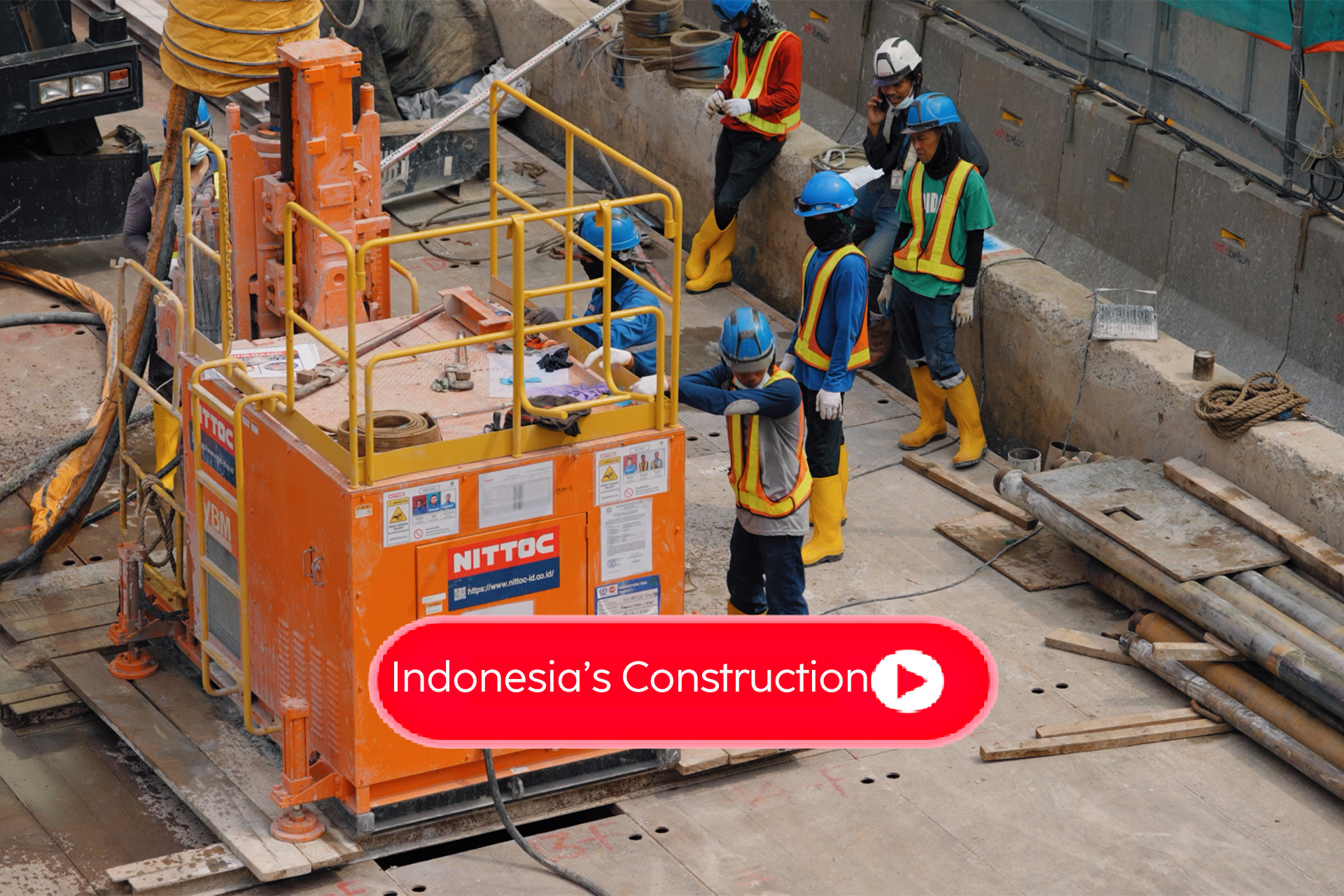Indonesia, as a rapidly growing developing country, has made infrastructure development one of its primary focuses in efforts to improve the quality of life for its citizens and support sustainable economic growth. In pursuit of these goals, the Ministry of Public Works and Housing (PUPR) of the Republic of Indonesia plays a crucial role in the planning, development, and implementation of infrastructure projects. One of the key challenges in infrastructure development is increasing the absorption of skilled and certified labor in the construction industry.
The Ministry of PUPR RI recognizes the importance of this and actively promotes the improvement of qualifications and certification of workers in that sector. In this article, we will explore the demands of infrastructure development in Indonesia and the efforts of the Ministry of PUPR to support the absorption of skilled and certified labor.
The rapid infrastructure development in Indonesia includes major projects such as highways, bridges, ports, airports, and various other vital facilities. This is an integral part of the government’s strategy to enhance connectivity between regions, support industrial growth, and create job opportunities. However, in realizing this vision, Indonesia faces several challenges that need to be addressed.
Indonesia’s Construction Challenges: Workforce and Human Resources
One of the primary issues in the construction industry is the qualification of the workforce. Large-scale projects like toll road construction or skyscraper development require specialized skills and high technical knowledge. Unfortunately, not all workers in that sector possess adequate qualifications. This can lead to poor work quality, project delays, and even workplace safety risks.
Furthermore, that industry requires significant investment in human resource development. This includes training, education, and certification for the workforce. Effective human resource development will enhance productivity, work quality, and safety. However, it requires coordination between the government, educational institutions, and the related industry.
Indonesia’s Construction: Role of the Ministry of PUPR RI
The Ministry of PUPR RI fully understands the challenges faced in infrastructure development in Indonesia. Therefore, they have taken proactive steps to support the absorption of skilled and certified labor in that sector.
Minister of PUPR RI Basuki Hadimuljono stated that, in addition to ongoing infrastructure development being a top priority for the Ministry of PUPR RI, the improvement of the quality of human resources in the construction workforce continues to be a focus.
“Ministry of PUPR RI also has a responsibility to develop competent human resources in the field of PUPR infrastructure,”
Minister Basuki.
Minister Basuki also mentioned that, based on a study by the Ministry of PUPR RI, for every increase of Rp 1 Trillion in infrastructure budget, approximately 14,000 skilled workers are required to execute that budget. As an example, the contractual budget allocation for the Ministry of PUPR in 2023 is Rp 89.11 trillion, which means approximately 1,024,223 skilled and certified construction workers are needed.
To meet the demand for skilled workers in line with Minister Basuki’s directive, the Ministry of PUPR RI, through the Directorate General of Construction, continues to conduct various training and certification programs for workers. They are also actively promoting the absorption of construction labor.
Indonesia’s Construction: Enhancement of Training and Certification Programs
The Ministry of PUPR RI has launched various training and certification programs for construction workers. These programs cover various fields, ranging from construction technicians to occupational safety supervisors. With these programs in place, workers can enhance their skills and obtain nationally recognized certifications.
Among the various construction worker training and certification programs conducted by the Ministry of PUPR RI, the primary goal is to achieve tangible results. These training programs are expected to provide practical benefits and be implemented effectively in that industry.
One of the training programs conducted by the Directorate General of Construction is the Launching Girder Operator Training. This training is conducted to meet the demand for qualified workers in the field of elevated of this sector. It is also motivated by the high number of construction accidents, especially in elevated of the sector using girders, around the year 2018.
According to timesindonesia, Samuel EDP Tampubolon, Head of the Construction Services Institute Region III DKI Jakarta, stated that the Launching Girder Operator Training at the Directorate General of Construction of the Ministry of PUPR RI began in 2022. In its implementation, three classes were accommodated by the Construction Services Institute Region III DKI Jakarta, and one class was conducted through the Construction Services Institute Region IV Surabaya.
In the fiscal year 2023, the Construction Services Institute Region III DKI Jakarta once again conducted two classes of the Launching Girder Operator Training, with a total of 46 participants from across Indonesia.
Conclusion
The rapid infrastructure development in Indonesia necessitates the absorption of skilled and certified labor. The Ministry of PUPR RI plays a crucial role in supporting this effort through training programs, collaboration with educational institutions, and related project oversight. With these measures, Indonesia can continue to progress toward sustainable and high-quality infrastructure development. As a result, the positive impact will be felt by the broader society, and the country will move towards a brighter future.




 20% off today. Whatsapp us!
20% off today. Whatsapp us!